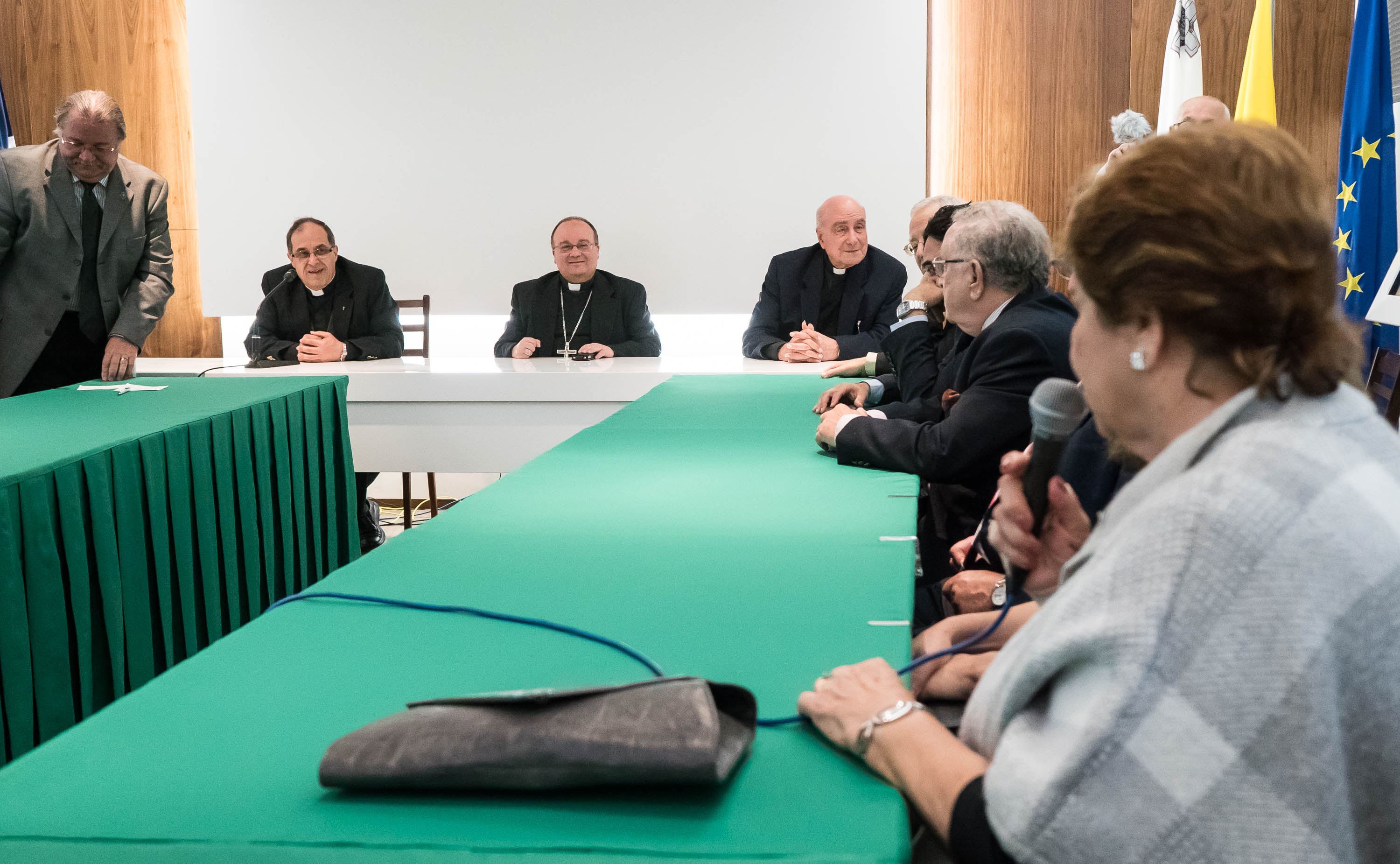-

-
On Monday 27th April 2015, Archbishop Charles J. Scicluna addressed those who attended the Convention for Maltese living abroad, at Dar l-Emigrant, Valletta.
The Archbishop’s Message
-

-
Dar l-Emigrant, Valletta27th April 2015May I start by saying a big thank you. First of all as I owe so much to Canada, the land in which I was born and where I was baptised. My papà was one of those eleven thousand who went to Canada in 1953. He came back to find a lady, and he found mamà. They went back to Canada in 1958, but they decided to return just over a year after. They did not leave the baby behind, so I was brought to Malta in April 1960, at eleven months.
Our presence here at Dar tal-Emigranti in this extraordinary space, which is not only about memory but also about heritage, reminds us about the need to remember to be able to share – sharing and teaching the history of emigration to our young generations, as you have been doing. This is an important aspect of the formation of future generations because this memory will help the present as well as the future.
We Maltese in particular need to remember the history of our emigration because now we have become a hosting nation. This reminds me of the word of Scripture: “Be kind to the pilgrim, remember that once you were a pilgrim yourself”. May I add to this, ‘Be kind to the immigrant, remember you were once an immigrant’.
We Maltese have been blessed with the, not so easy process of finding new countries, and indeed I think we have made a very good name for us. I do not want to canonise every person who went away because I do not think this is a process of canonisation; we are not going to proclaim every person a saint, as we also had people who have been refused reentering into Australia.
As Mgr Philip Calleja, Fr Alfred Vella and Charles Busuttil said earlier, we need to preserve the memory. So I would like young people for example, to make it a point to go and pester our senior citizens abroad, to capture five minutes on video about their story, and send it to this museum for record. We need to tell stories, we need to listen to them, we need to be able to share our experiences. We may not have this heritage in ten years time. Certainly it will be lost within 25 years, but the mission of this place is to teach Maltese people, especially the young, what so many thousands of Maltese went through to find a new home. My prayer is that this sort of formation will help us be a new home to those who need one, to those who need safety, who need a haven, even if it is for a few months or a few years.
May God bless your efforts to come here, especially those who travelled long distances. I have been to many places, either as an anonymous priest or as an anonymous monsignor, doing work which I could not talk about, having, at times, a few days of holidays at the side. But now I know I need to return to your country as the Archbishop, as I would like to meet the diaspora, as the shepherd of a very large community.
You mentioned the need of pastoral care. This is a challenge as we try to find out ways of ministering to so many communities on the Island and also in Europe. Fr Vella regularly goes abroad to minister, but I understand that a fresh presence may be very beneficial. I would like you also to pray, that the Catholic church in your countries may be blessed with vocations from your own communities, because this is indeed a very special blessing.
I did go back to Canada in 1999, when I turned 40. I wanted to go with my parents, as I wanted them to show me the house where we used to live, I wanted to see the hospital, and I wanted to say mass in the Church where I was baptised. I was very lucky, because after I celebrated mass, I met the Maltese priest, Fr Vella, who had baptised me 40 years before. I went in to meet him and say thank you. He was going to celebrate his 50th anniversary of his ordination to the priesthood, and he said “thank you, I have baptised lots of people, two of them became priests, Scicluna and Fr Jimmy Zammit, a Franciscan”. Back in March this year, during my Solemn Installation, I visited the Franciscan church on my way to the Mdina Cathedral, and I was given the birth certificate from St Paul’s in Canada.
Our presence here today is important, not only for what we receive during such Conventions, and I’m sure that the Government is always interested in organising Conventions to see what they can reap from such an extraordinary wealth, but it is also very important for us to have you with us to realise that we are not talking about film heritage, but we are talking about living people, which I hope will go on through the generations.
May I end by recommending a special prayer for the Egyptians who in 1956 were expelled from Egypt. This experience helps us realise that we also have dark moments in the history of our experience. We should not forget those as well. We should not forget for example, that part of the Australian experience was also sad. When we tell our history, we need to be able to share the light and the darkness because that is the source of true wisdom. Thank you.
✝ Charles J. SciclunaArchbishop of Malta -
-
Photos: Curia Communications Office





















